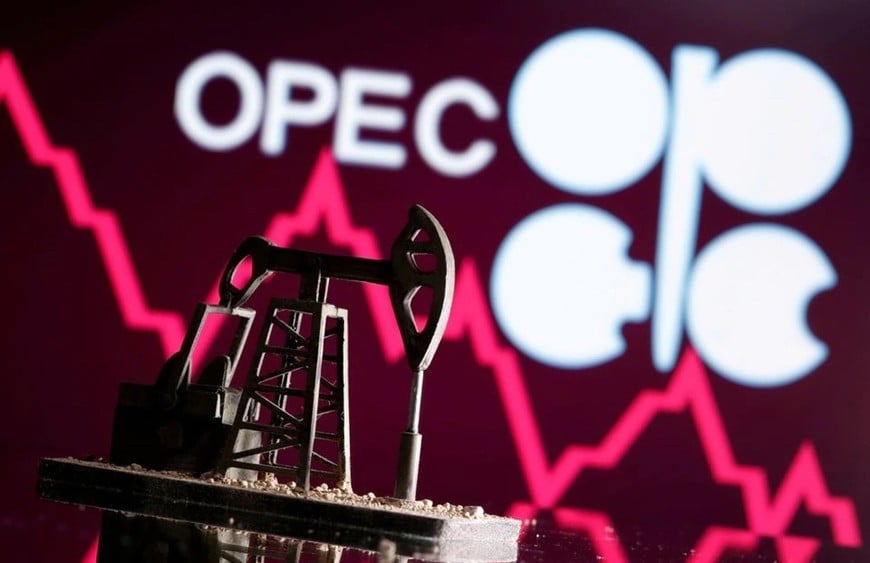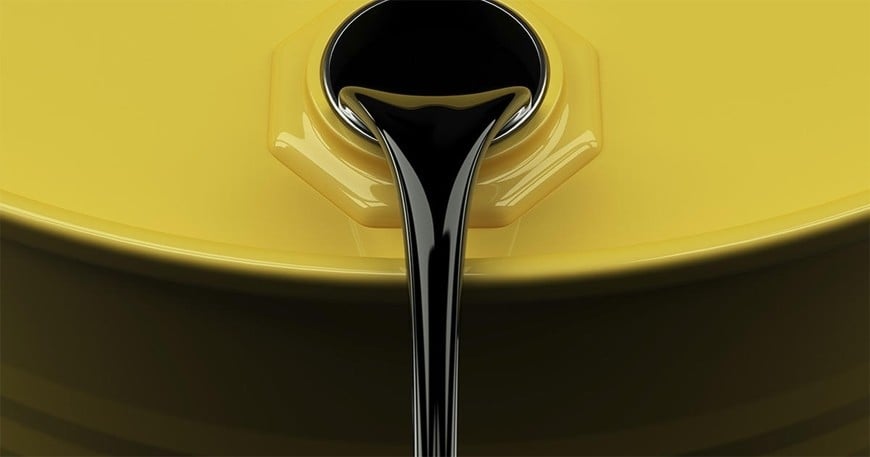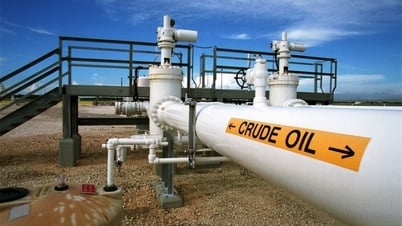Oil prices fell slightly on June 12 after traders took profits from a more than 4% gain in the previous trading session.
According to Reuters, at the end of the trading session on June 12, Brent oil price decreased by 0.41 USD/barrel, equivalent to 0.6%, to 69.36 USD/barrel. WTI oil price decreased by 0.11 USD/barrel, equivalent to 0.2%, to 67.97 USD/barrel.
World oil prices fell slightly in the trading session on June 12. Illustration photo: Reuters
In a recent speech, US President Donald Trump said that an Israeli attack on Iran "could happen", but also emphasized that he did not think it was imminent and that he still wanted to avoid conflict.
Previously, the US decided to withdraw some personnel from the Middle East, causing Brent and WTI oil prices to both increase by more than 4% in the trading session on June 11, reaching their highest level since early April.
StoneX analyst Alex Hodes said technical indicators show that this sharp increase has put the market in overbought territory, so the possibility of a short-term price correction is understandable.
US President Donald Trump has repeatedly threatened to attack Iran if the two countries fail to reach a common agreement in nuclear negotiations. Meanwhile, Tehran insists that its nuclear program is for peaceful purposes only, and has vowed to retaliate by attacking US bases in the region if attacked.
Illustration: Planet Energies
Rising tensions in the Middle East have oil investors worried about the risk of supply disruptions. The UK Maritime Authority has warned that escalating tensions in the Middle East could lead to increased military activity and affect shipping in key shipping lanes.
“The biggest nightmare for the oil market is the closure of the Strait of Hormuz. If Iran were to block this vital route, it could affect 20% of global oil flows,” said Arne Rasmussen, an analyst at Global Risk Management.
JPMorgan predicts that oil prices could spike to $120–$130 a barrel if the Strait of Hormuz is closed, a serious but low-probability scenario. Still, oil traders are becoming increasingly cautious.
“Prices are still higher than two days ago as some investors chose to stay on the sidelines amid the uncertainty,” said Giovanni Staunovo, an analyst at UBS bank.
According to Reuters, US Special Envoy Steve Witkoff is expected to meet Iranian Foreign Minister Abbas Araghchi in Oman on June 15 to discuss Iran's response to the US deal proposal.
The International Atomic Energy Agency (IAEA) has just announced that Iran has violated its commitment to non-proliferation of nuclear weapons. This is the first time in 20 years that the IAEA has passed a resolution accusing Iran of violating its nuclear safety obligations, a move that could adversely affect and complicate the stalled nuclear negotiations between the US and Iran.
Domestic gasoline prices
Domestic retail prices of gasoline on June 13, specifically as follows:
E5 RON 92 gasoline is not higher than 19,462 VND/liter. RON 95-III gasoline is not higher than VND 19,967/liter. Diesel oil is not higher than 17,700 VND/liter. Kerosene is not higher than 17,511 VND/liter. Fuel oil is not higher than 16,461 VND/kg. |
The above domestic retail prices of gasoline and oil were adjusted by the Ministry of Finance - Industry and Trade in the price management session on the afternoon of June 12. In this adjustment, domestic gasoline and oil prices increased simultaneously. The price of E5 RON 92 gasoline increased by 199 VND/liter, the price of RON 95-III gasoline increased by 269 VND/liter, the price of diesel oil increased by 280 VND/liter, the price of kerosene increased by 227 VND/liter and the price of fuel oil increased by 283 VND/kg.
During this management period, the Ministry of Industry and Trade - Ministry of Finance did not set aside or use the Petroleum Price Stabilization Fund for E5 RON 92 gasoline, RON 95 gasoline, diesel oil, kerosene, and fuel oil.
Source: https://baolangson.vn/gia-xang-dau-hom-nay-13-6-quay-dau-giam-nhe-5049912.html




































































































Comment (0)